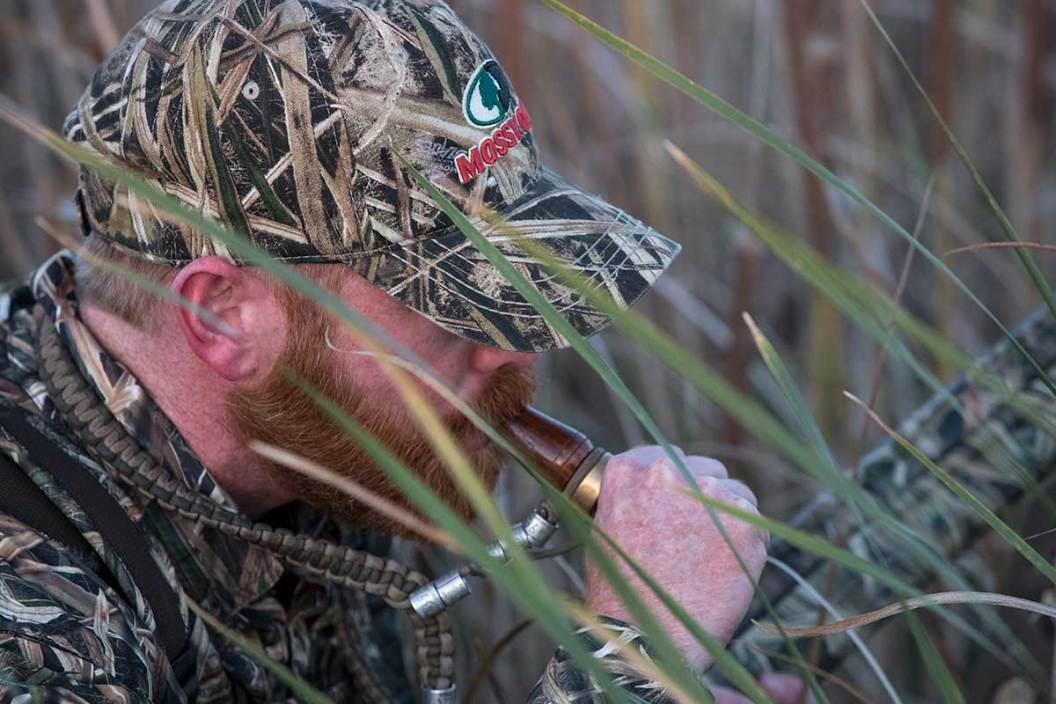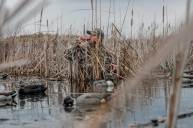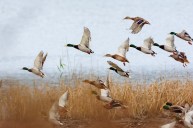As duck season approaches, it's time to start brushing off those duck calls and sharpening your skills. Were you having trouble getting ducks to commit last year? Are you struggling to find the right cadence? Maybe this is your first year waterfowl hunting and you're just trying to understand the basics. I know several duck hunters who can perform a basic quack perfectly, yet their timing and cadence is terrible. I know others that seem to understand when to call, but they sound more like a frog than a mallard. Without knowing how to make the most of your call, it's essentially just noise, and won't help you bring the ducks in or shoot limits. Use these seven tips to call more ducks and you'll be ready to hit the blinds this November.
Call Your Target
Last year I hunted with a buddy of mine over some flooded corn fields. He let out a beautiful blue wing teal call as the birds in front of us veer off to our left. "Man, that sounded great, surprised they didn't come," he said. I wasn't, however, because the birds in question were mallards. Now to be fair, blue wings sound fairly similar to mallards, with a slightly different cadence that can be hard to discern for first time waterfowlers. But the point is to know what you're calling. If you're calling mallards, use a cadence that best resembles a mallard. If you're calling to wood ducks, use a wood duck call. Seems simple enough, but you wouldn't believe how many people get this wrong.
Develop a Solid Quack First
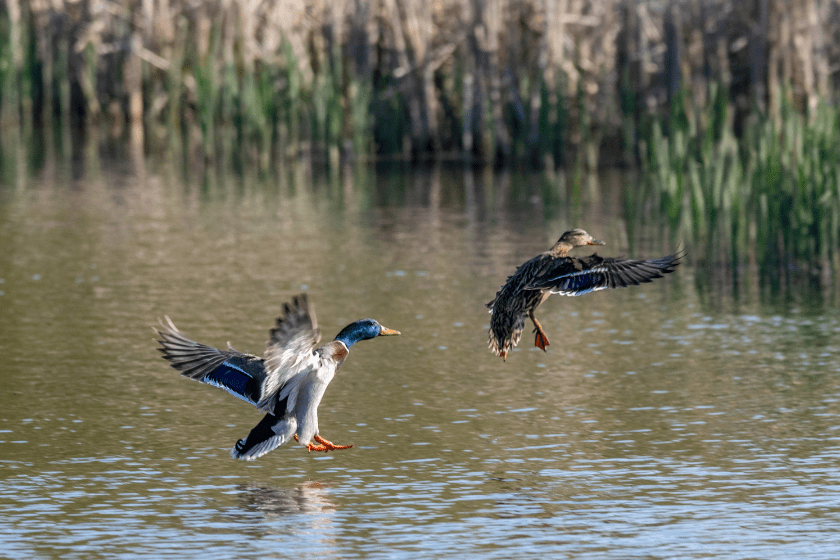
It's almost instinctual that as soon as someone picks up a duck call they want to try a feed chuckle. It's a pretty fun call to do, but this will only create bad habits and confusion when it comes to more important calls like the basic quack. It's said that good waterfowlers can limit out using only basic, single-note quacks. While this is somewhat misleading, the emphasis it puts on the call is very true. Before worrying about multi-note calls, specific cadences, feeder chuckles, hails, and the like, you must first master the single quack until it becomes second nature. Once you master the quack, other calls will seem relatively easy.
Find the Right Call for You
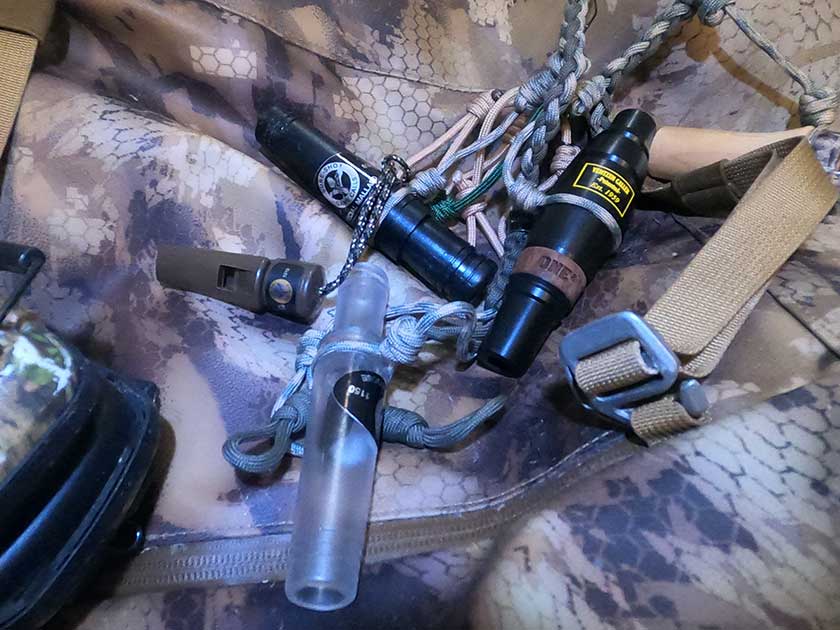
There are hundreds of call manufacturers out there trying to sell you on the best sounding duck call, and most of them probably sound great, but you need to find one that is most comfortable for you. I always encourage new waterfowlers to try a few different calls until they find what works best. Duck calls work from air pressure going through the barrel, causing the reeds to vibrate on the tone board to create that beautiful quacking sound we all love. For the most part, they come in three options: single reed, double reed, and triple reed. While I prefer the crisp and clear sound of a single reed, doubles are best for those just starting out.
Duck calls are made of wood, acrylic or polycarbonate. Wood calls are more traditional, but tend not to hold up well to the harsh conditions of seasons and seasons of duck hunting. Still, old-school veterans will tell you nothing sounds better than natural wood. Acrylic is probably the most popular option and offers the best versatility and range of tone. Acrylic calls are more on the expensive side due to manufacturing costs, but polycarbonate is a great alternative for newer duck hunters and those on a budget. Try a few different types out and see which one works best for you. As you become more experienced, you'll be able to use a wider range of calls.
Use Your Whistle
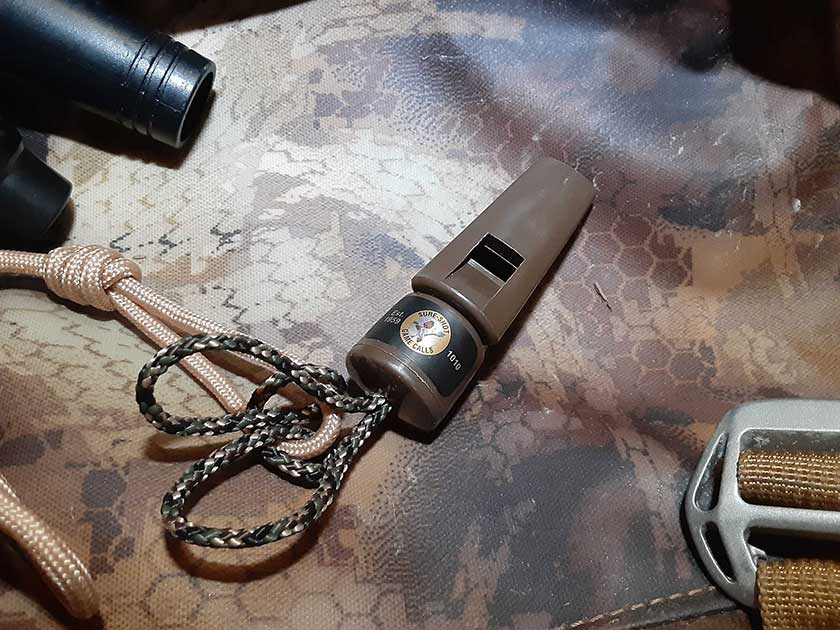
The whistle is often the most undervalued call on a waterfowler's lanyard, but it shouldn't be. Whistling can be extremely effective when calling in teals, pintails, widgeons, and even mallards. Don't be afraid to throw in some whistles with your quacks. Often this differentiation is just what you need to bring ducks into your spread.
Avoid Uninterested Ducks
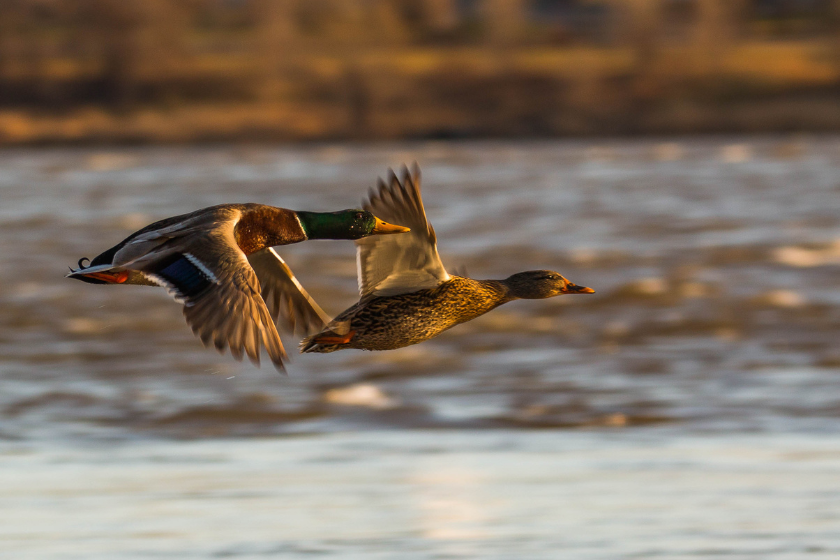
Sometimes you make the best duck sounds possible, and the ducks still won't come. That's inevitable, so get over it. One of the great mysteries of ducks is why they'll respond to some calls but not the others. The best advice is to not focus too much on getting those uninterested ducks to come back, but to focus on new ducks instead.
Know Your Types of Calls
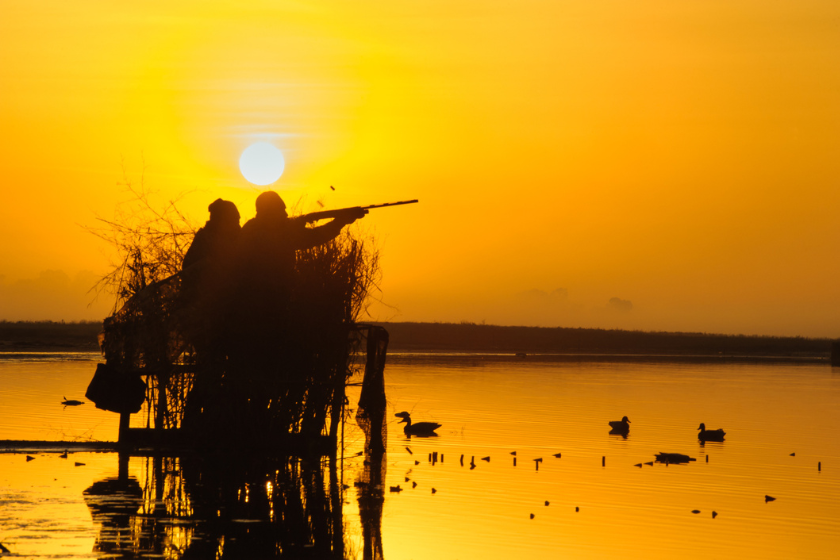
Knowing which calls to use based on what the ducks are doing is perhaps the most crucial factor that differentiates a successful hunt from an unsuccessful hunt. Depending on the flock's behavior, you may need to use different cadences to grab their attention and seem more realistic.
When I first see ducks far out I like to start with a greeting call. This is basically just six or seven notes that are gradually cut off at the end. This is an easy call to learn and can be a tremendous foundation for becoming a successful waterfowler. Another, the comeback call, is an awesome call to use when you're in flooded timber and need an immediate response. As the name probably suggests, this should mimic a desperate duck urging the others to come back, so it's a much faster call with about six to eight notes. Alternatively, the hail call should only be used when ducks are flying extremely high or are far out in the distance and don't appear to be headed your way. This is a call that should not be overused, as you run the risk of frightening nearby ducks. This is sort of a last ditch effort call that should be blown extremely loud and much higher pitched. These can be about 10 strong notes that taper off smoothly towards the final notes. The feeder call is probably one of the most overrated calls for waterfowl. The fact of the matter is it probably sounds better to humans than it does to a duck. In all of my years duck hunting, I have yet to hear a single bird make the "machine gun" sound that I hear most callers on social media making. More often than not the ducks will make a few quick "tikas" as they feed in the water as well as when they are trying to space out for landing. Use this call sparingly, although it's a nice tool to have when you need it.
Don't Overcall

Here's a novel idea: just because you see birds doesn't mean that you should call. A wise hunting friend of mine told me to simply watch the birds as they land and witness how they communicate. This comes with experience, but one thing is for sure is that ducks are not constantly quacking to each other.
Overcalling will immediately alert a duck that something is off and they will avoid your setup like the plague. Next time you're hunting, pay attention to how the ducks are communicating as they're flying, as they land, and as they feed. Ducks will generally only quack to get the attention of another duck, and as soon as they have accomplished this, they stop. Less can be more in the duck blind.
To become an effective duck caller, it takes practice and experience. Ask a hunting mentor their thoughts, and get out in the field to just listen instead of being so eager to shoot, as there is so much to gain from that. Use these seven tips and practice each method for this upcoming season and you'll be hitting limits and grilling up breasts before you know it.
